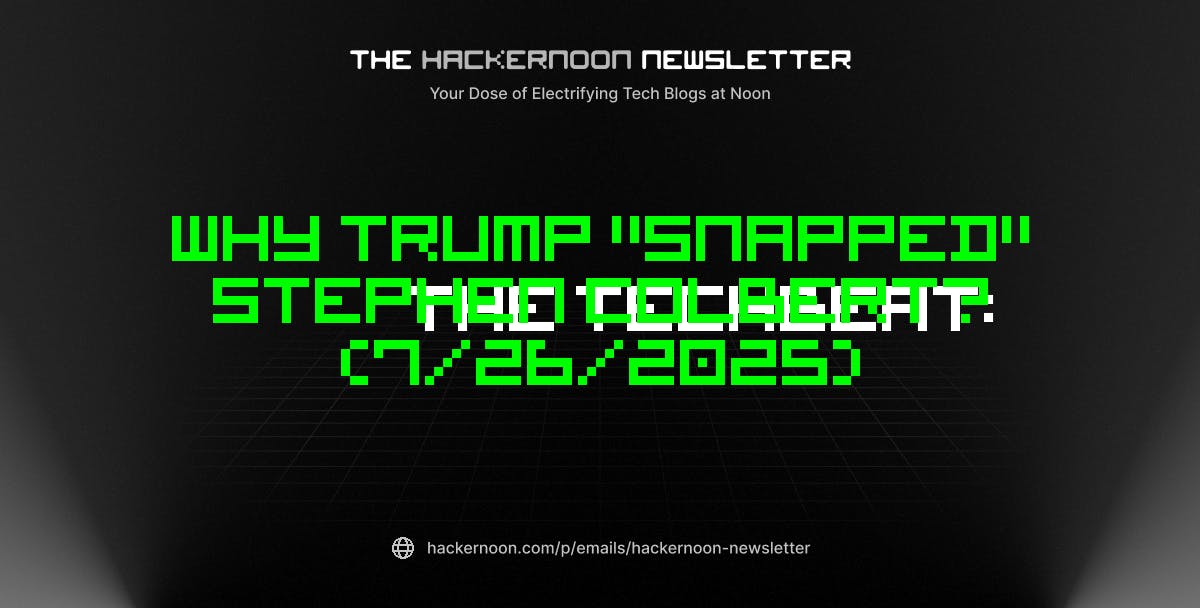Freelancing can be a flexible and lucrative career option depending on what industry you work in. Freelancers don’t earn a fixed income, and because they work with different clients, often multiple at a time, they can negotiate better fees. They also set their own schedules and choose whom to work with.
But how do they make it work?
spoke to 10 freelancers across Africa to understand how they work, what tools they use, and the challenges they face in their day-to-day. From creative professionals in Lagos, Nigeria to tech developers in Kigali, Rwanda and an IT Engineer in Rabat, Morocco, their stories paint a picture of a growing but uneven ecosystem.
Gloria Chimelu – Web3 Content Marketer, Nigeria
Gloria Chimelu is a Nigerian Web3 content marketer. She has written and consulted for multiple brands across the globe. Her freelance life is a mix of structured systems and the chaos that often comes with working in an emerging tech industry.
“I use Google Docs, Notion, Google Keep, Twitter, and Discord to stay on top of my work,” said Chimelu. “Some clients prefer tools like Asana, so I adapt as needed.”
Most of her payments come in cryptocurrency—usually stablecoins—which she converts to naira. When clients can’t pay in crypto, she turns to GeegPay to collect dollars and manage conversions.
Her workflow starts on Twitter, where she either gets approached or finds job leads. After sharing her portfolio and going through up to three interview rounds, she signs a contract, delivers the work, and incorporates client feedback. “Once a project wraps up, I take the lessons and apply them to the next one,” she said.
Being in Web3 means her earning potential often moves with the market. “When the charts are green, everyone’s hiring. When they’re red, rejections triple,” she explains. Payment delays or being paid in crypto tokens that drop in value are common, making income unpredictable.
Despite this, Chimelu calls Twitter her most valuable tool. It’s where she finds jobs, tracks trends, and catches a break through meme threads when the hustle gets too loud.
Fabrice Bizimaan — Web Developer, Rwanda
Based in Kigali, Fabrice Bizimaan works with global clients on full-stack web projects. He mostly gets hired through recommendations from platforms like Slack and LinkedIn.
“When a new project comes in, I first meet with the owners or team to understand the scope and timeline. Once we agree, I start building,” he explains.
His developer toolkit includes VSCode, Xcode, Android Studio, and frameworks like Next.js, Vue.js, NestJS, and Django. For collaboration, he sticks with Slack and Notion.
Bizimaan prefers to receive payments through cryptocurrencies. He opts for Binance, the global crypto exchange app which, unlike Nigeria, is still operational in Rwanda. Other times, Bizimaan gets paid for his work through bank transfers. Equity Bank, Kenya’s second-largest bank by assets, allows Rwandans to accept international payments directly using SWIFT code.
“Cypto takes seconds,” he said. “SWIFT transfers take longer when the sender is outside Africa; but they work, too. I also use Payoneer when needed.”
One of his biggest hurdles to finding freelance work is geography.
“Many opportunities exclude Africans. You’ll see: ‘Only open to US residents.’ That’s frustrating,” said Bizimaan.
Despite the limitations, Bizimaan keeps building. His workflow is structured, his tech stack deep—and he’s proof that freelance developers on the continent are just as capable, even if the doors aren’t always open.
Itunu Obanla — Copywriter, Nigeria
Itunu Obanla, a Nigerian freelance copywriter, builds his freelance pipeline mostly through Upwork, where competition is fierce and visibility now depends on bidding power.
“Before submitting a proposal, I check client reviews. But now, whoever uses the most ‘Upwork Connects’ [a form of credit for applying to gigs on the app] gets their proposal seen first—it feels like a car auction,” he says.
He supplements his work search with gigs on Fiverr and LinkedIn, but Upwork remains his primary platform. Payments pass through several layers: first to Payoneer, then converted to cryptocurrency, and finally to naira.
“The platform is saturated,” said Obanla. “There’s nothing easy about it. I’m still doing this because I’m in the country.”
His biggest pain working as a freelancer is the wait. Every finished job kicks off another round of proposal submissions on freelance websites, with no guarantee of what comes next.
“You could be busy with work today, then wait months before the next project lands,” he said.
Obanla doesn’t romanticise freelancing. It’s work, not freedom. But in a tight economy, showing up consistently is what keeps the wheels turning.
Joshua Adeyemi — DevOps Technical Writer, Nigeria
Joshua Adeyemi, a DevOps technical writer in Nigeria, focuses on writing clear, well-researched technical content for DevOps teams. His tools of choice—Google Docs, Grammarly, Fraser, and ChatGPT—help him stay organised and ensure his writing is polished and SEO-friendly.
He gets paid in dollars through Grey or GeegPay, depending on what suits the client best.
“Once the funds land in my account, I convert the money and withdraw to naira,” Adeyemi said.
Most of his tasks are assigned via Trello. Each article begins with a round of research before he starts writing, usually taking about three days per task. Once done, the content goes through an internal review before being published.
Staying productive, he says, is a mix of the right tools and the right mindset.
“Trello keeps me on track, Google Docs makes collaboration seamless, and being eager to learn helps me handle tough subjects,” he said.
His biggest challenge is managing multiple deadlines while keeping every piece accurate and digestible.
“There’s a lot of pressure to be right and write clearly when you’re explaining technical topics to a non-technical audience,” he added.
Bobkevin Shoo — Digital Marketer, Tanzania
Bobkevin Shoo, a digital marketing consultant in Tanzania, has carved out a space on Upwork as a digital marketing consultant, managing campaigns and client strategy for companies around the world. His workflow begins with job searches through the platform, using Upwork Connects to apply and occasionally responding to direct invites that come in each month.
Once hired, he coordinates tasks and milestones using Upwork, while most real-time communication with clients happens on Teams.
Juggling various roles—from client communication to document management—Shoo depends on a stack of tools to stay efficient. He communicates with his team through WhatsApp, Microsoft Teams.
To-doist helps track deliverables. Google Docs is used for all critical documents, while SmallPDF and Stempu help him sign and stamp contracts. He sharpens the look of documents with Canva and leans on ChatGPT to polish emails and clean up grammar before sending them out.
Getting paid isn’t straightforward. Due to PayPal restrictions in Tanzania, he’s limited to Upwork’s SWIFT transfer option, which comes with a $30 fee per withdrawal. “Over two years, I’ve lost quite a lot [of money] to transaction fees,” he says.
Shoo says the most difficult part of freelancing isn’t the work—it’s securing new contracts.
“Once a project ends, you’re back to square one.” Yet, he keeps showing up, refining his pitches, and using every tool available to stay in the “game”—a term he uses to describe the gig-hunting process.
Silvia Gituto — SEO Content Writer, Kenya
Based in Nairobi, Silvia Gituto brings a research-first mindset to her work as an SEO content writer. Her approach is rooted in clarity and communication, which she says is non-negotiable when crafting content that not only ranks, but resonates.
Gituto uses and Monday.com, two popular SaaS project management and scheduling apps, to manage her projects, depending on the client’s preferred workflow. “They help me keep everything organised and ensure I’m on track with deadlines,” she said. For payments, she relies on bank transfers or Wise to receive funds from international clients.
Her process starts with listening. “I ask questions until I fully understand the client’s goals,” she explained. “Then I get to work, keeping them in the loop as things progress. Nothing gets finalised without their input, and I’m always ready to adjust until it feels right to them.”
Staying connected to her professional community plays a key role in keeping her grounded.
“LinkedIn and Slack make my life easier,” she said. “I get to catch up on what’s going on and have a community of like-minded people.”
Between those interactions and her reliance on project management tools, Gituto maintains both a network and a system that help her deliver consistently.
Yet, freelance life comes with its fluctuations, according to Gituto.
“Inconsistent income. Some months are great, others not so much,” she noted. It’s a challenge she’s still learning to navigate, but her commitment to understanding each client’s needs before typing a single word keeps her in demand.
Faizah Naserian — Web3 Community Builder & Content Creator, Kenya
Based in Kenya, Faizah Naserian builds Web3 communities and creates content for blockchain projects. X (formerly Twitter) is where she finds jobs, shares her work, and keeps up with crypto industry trends. Telegram and Discord help her stay in touch with communities and team members across different time zones.
She prefers to get paid in cryptocurrency—either stablecoins, utility coins like Bitcoin, or project-specific tokens—using Binance and other crypto exchanges. If a client isn’t crypto-savvy, she falls back on PayPal.
“Crypto payments are faster and don’t come with questions from banks about where the money came from,” she said. She’s also helped onboard over 40 clients into the crypto space.
Kenyan freelancers have several payment options, but most are slow or expensive. SWIFT transfers through banks can take up to five days and often require documentation. Services like WorldRemit, Western Union, and MoneyGram are popular alternatives for Kenyan freelancers. Occasionally, Naserian also uses M-PESA, Kenya’s mobile money platform, to receive international payments directly into her phone wallet.
Her workflow starts with research. Before reaching out to a project, she studies the team, roadmap, and utility. Once hired, she works on deliverables tied to clear milestones and prefers partial upfront payments.
“The hardest parts are internet issues, power outages, and limited access to good hardware and gadgets,” she said. “I’ve lost work because I couldn’t get online or meet deadlines,” citing the unproductivity this issue causes the team which she manages.
Language and platform barriers also add friction when dealing with clients from countries like China, where apps like WeChat or specific crypto tools are required.
Citing the notoriety of clients to follow through on agreements and payment terms, Naserian said the biggest issue she faced when starting out five years ago. As a result, she made a new policy to charge 30–60% upfront on every project before it kicks off.
“Motivation is my biggest tool for my work,” she said. “It sounds funny, but that’s the truth. Freelancing is tough; it’s like owning and running a business—income is unpredictable. So it is motivation that gets me going when the work is tough or the client work is slow.”
Minnie Mururi — SEO Content Writer, Kenya
Minnie Mururi, a freelance SEO content writer in Kenya, uses a mix of tools to stay organised. She relies on Slack for communication, Screaming Frog, Ahrefs, and Semrush for SEO analysis, and Monday.com or for project management.
She gets paid through direct bank transfers or Wise, depending on what works best for the client.
Her process is straightforward: understand the task, complete it, send it in for review, make edits, and invoice.
“The project management tools help me stay on track and keep communication clear,” she said.
Like Gituto, her main challenge as a freelancer is inconsistent income.
“Some months are great, others are slow,” she said. “It’s tough, but it’s part of the job.”
Diana Chiyangwa — Freelance Journalist, South Africa
Diana Chiyangwa, a freelance journalist based in South Africa, focuses on long- and short-term reporting projects funded by grants. She applies to journalism organisations offering support for work on specific themes, completing about two to three projects a year. Her current assignment runs until September 2025 and includes training and mentoring components.
She manages her work using Google and LinkedIn and receives payments directly into her bank account. X (formerly Twitter) helps her stay updated with news and connect with other journalists.
Her main challenge is the gap between projects. “When there’s nothing in the pipeline or no new commissions, it becomes a challenge to sustain day-to-day living,” she said.
Zakaria “Zack” Jougha — IT Engineer & Web Developer, Morocco
Zakaria Jougha, a freelance web developer based in Morocco, manages most of his work through Fiverr. The freelance platform handles everything from client communication to payments, which he withdraws via Payoneer, PayPal, or bank transfer depending on the project.
He tracks tasks with Trello or Notion, uses Google Workspace for documents, and turns to Canva or Adobe tools for design-related work. Google Calendar helps him stick to deadlines.
When a client reaches out, he discusses the project scope, shares a custom offer if needed, and begins work once the order is confirmed. He stays in touch throughout and makes revisions as requested.
“Fiverr makes it easier to manage everything in one place,” he said. His biggest challenge is juggling multiple deadlines, which he handles with daily planning and clear communication.
African freelancers are figuring it out. They use what they have, pick up what they need, and keep going. The systems aren’t perfect, but somehow, they ensure the work gets done.
Mark your calendars! Moonshot by is back in Lagos on October 15–16! Join Africa’s top founders, creatives & tech leaders for 2 days of keynotes, mixers & future-forward ideas. Early bird tickets now 20% off—don’t snooze! moonshot..com








